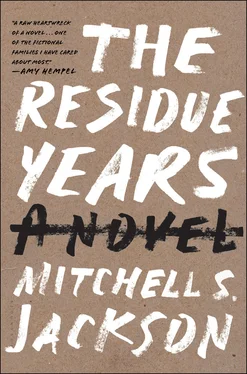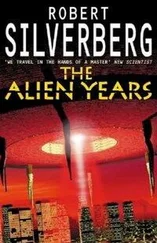Do we have a shot? I say. A real shot?
Of course. Of course. Don’t worry, with what you quoted we should be good, and if they ask for more, it shouldn’t be by much..
What about how much you want to do the deal? I say.
We can figure my fee later, he says. We’ll get a deal with them in place first.
Jude says sometime soon we should check out at least a few other properties, that he’d love to show me his neighborhood, his new place. He lives in Beaverton, and why oh why am I not surprised? There can’t be a swath of my fair city even a scintilla more befitting of a homogenous middle-aged white man.
You got it, I say.
We shake and he shows me out. I totter across the street with a math problem for a brain. Right, so oddsmakers there’s a forever source of ways this deal could fail, but as I said for my family, for all of us, I can’t let this dream defer, won’t let it fall apart. I glance back at Jude, and his chubby mug is lit with mirth.
Do you understand?
— Grace
We meet outside of Andrew’s.
Champ shows with his brothers, my babies, who I haven’t seen since I went out to Kenny’s place, and I don’t know what they’ve been told. They sit and I sit and for a moment it’s a schism that can’t be breached. I get out of the Honda first — this is what mothers do — and gaze at my babies through the back window of Champ’s car, see them from the neck up, dark caps cocked sideways and bright tops. Canaan climbs out first and then KJ. They haste over and crush me in a double hug. Meanwhile, Andrew strolls out of the house onto his porch. His potbelly presses against his shirt; gray stubble speckles his bald head. He looks like a father, that he should’ve been my father, that he will be if he isn’t now. He slinks off the porch and over to us. Well what a surprise, he says. So I guess you were all itchin to visit old granddad, he says. Or is something else?
Something else, I say. A family outing. We’re going out to Multnomah Falls. Where we haven’t been since God knows.
Now, there’s a great day in the works, he says. He straightens the boys’ hats and asks what’s new, if they’ve been misbehaving, and the boys answer in voices too low to be believed, the pitch of my speech when the truth isn’t holding it up. Champ pops out and says hello to Andrew over the roof. Andrew mentions something to me about court, says we need to talk later.
Guess I should let you all get going, he says. If memory serves me correct, it’s crowded up there this time of year. You guys have a blast and be safe up there near the water, he says, and backs onto the lawn.
We load up. I give KJ the front seat so I can sit in the back with my baby. Andrew stands in the grass and waves good-bye.
Champ takes the busy streets to the eastbound on-ramp. We pass 33rd, 42nd, 82nd, 102nd, 122nd … farther, he lowers the music to white noise and tells the boys that when we get where we’re going, they best act like they got some sense. For a time after that, there either isn’t enough to say or is too much to say, as we ride with the wind no more than a hum through the sunroof’s angled slit.
This feels as if we could ride to the next morning, ride right on until we reach the next coming. We cruise easy along 84 East. We get out to where for stretches and stretches they raise the posted speed limit. Out where semis think they own the road, where a camper hogs two lanes. We wheel by a four-by-four tugging a winched boat, blow past a long trailer hauling a manufactured home, past roadkill and a fat tire blown to shreds, past a car stranded on the side of the road with a man kneeling near a fender. We go farther, through the Gorge, highway flanked by the river on one side, woods on the other. I reach over the seat and touch KJ to see if he’s asleep. I snug next to my youngest, see a car float past with a bumper sticker that says BLESSED TO BE ALIVE. There’s a tiny stretch on this trip that’s a place between places. Canaan, mouth hung, nods on my shoulder and catches himself and rights. You gonna be there, right? he says.
Be where, baby? I say.
There, he says. In court.
KJ twists around. Yeah, dummy, he says.
No one in this car is a dummy, I say.
Mom, do you know what will happen? Canaan says. What they gone have us do?
Nothing you don’t want to, I say. I promise you that.
The car goes quiet and I close my eyes and drift. When I open them, there’s a sign ahead that says the falls is next exit.
Out front there’s a welcome sign and a paved lot and today must be the day. Trucks and buses and cars and vans and SUVs — all colors. License plates from Oregon and across the bridge, California tags, states farther east. We hunt lanes and luck upon a van pulling out to leave. My boys, awakening, slink behind me through the maze of cars to where you can first see the lodge. There’s a crowd gathered, and we huddle a good distance away while a guide trumpets instructions. The space clears, and I make the boys read the sign that list facts about the falls. That it’s the second tallest year-round falls in the country, that it’s fed by underground springs, that this time of year it flows its highest, that millions visit each year, that it’s such and such feet to the falls’ peak.
Before we start, I announce the rules: No horseplay, no hiking off alone. If one makes it up, we all do. And your mama’s making it, I say. So we all will. Champ takes the lead when we get on the trail, complains within steps of scuffing his new tan boots. My youngest boys fight the incline in matching black tenny shoes, while I caboose it in the flattest flats I own. In flats I hope are flat enough. Farther up my knees and back are signing pay back, and this mist is turning my hair to shriveled knots. My boys and me among a trickle climbing as singles and couples, the smart ones trekking wary of the slick spots hard to see until it’s too late.
A man carries his son on his shoulders. A woman totes a baby in a sling. A pack of boys stomp with fanny packs strapped on their waists. There’s a sparse trail floating down from the top, flashing faces of pity — or pride. Meanwhile, I keep my arms and legs pumping and my chin held high.
Champ, in the lead, stops and turns to us. Ya’ll cool? he says. If one make it, we all make it, right? That’s the deal.
His timing is spot on. We are past the point of turning back being easier than pushing ahead. We reach the feeble swaying bridge. People lined up for pictures with a wood statue. From here the falls gush from above and below. From here the river, blue, a deep blue, funnels between steep slopes. Come, I say, and bring my boys into a circle. We take up hands, and I look each one of them in the eye. I want you to hear me, I say, straining against the spill of the falls. There’s nothing for you to be afraid of. All you have to do is tell the truth, I say. Today’s truth. The next seconds stretch; my God do they stretch. Remember this, I say. You, me, us — we can’t ever get trapped by who we were. Who we were is not who we are. Who we are is right here, I say. And right now. The truth of us is on this bridge. Do you know what I mean? This, I say, is us.
That’s all well and good, Mom, Champ says. But here’s a truth: We’re beat. How about we hike back down? The boys snicker and our circle breaks apart.
Oh no, I say. This is a good hurt. An earned hurt. We can’t come this far and stop short.
From my biddy ball days all the way through my senior year, this place was a home, which is how (they skimp on the light bill and keep the heat so low winters a nigger could catch frostbite) the people who run the joint treat it. To top it off, it’s funky — or worse we’re talking reektastic.
Читать дальше












